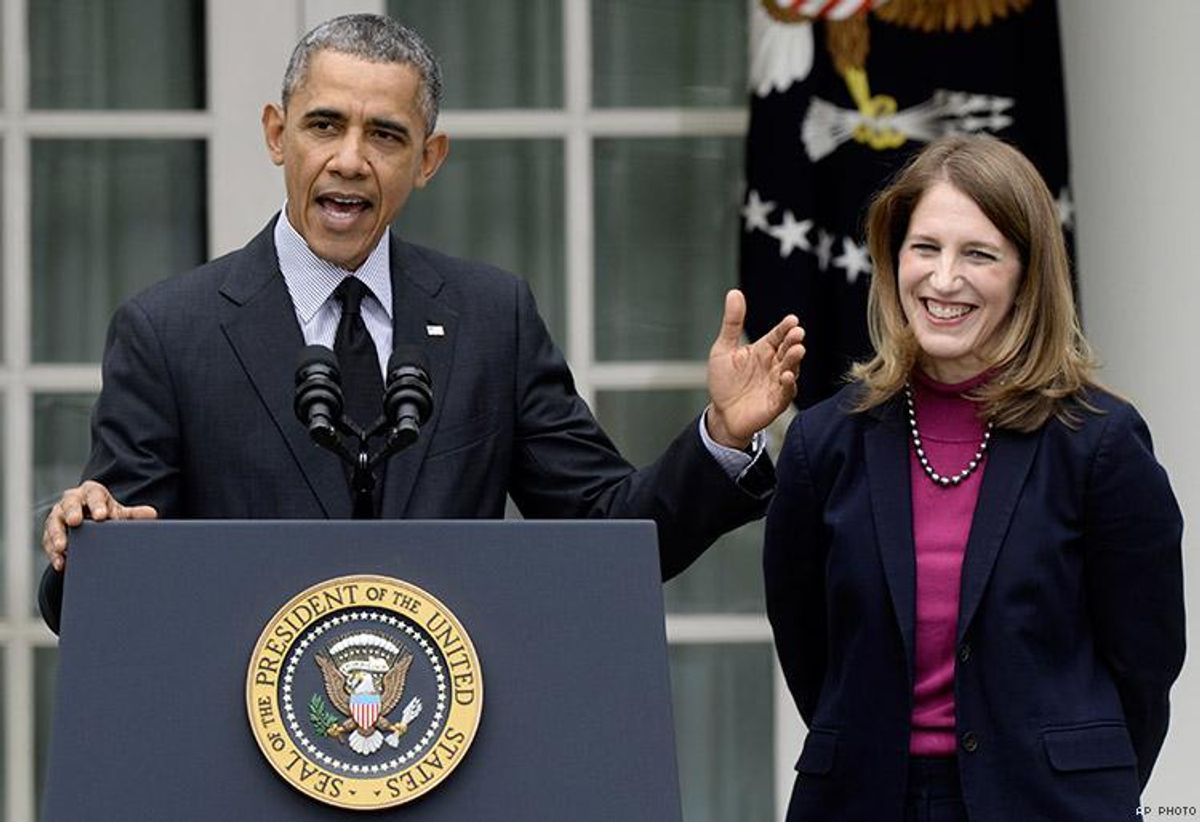Only a day after the federal Department of Education announced that Title IX protects transgender students, the U.S. Department of Health and Human Services announced Friday that health providers must provide transgender people with transition-affirmative health care.
The Nondiscrimination in Health Programs and Activities rule puts Section 1557 of the Affordable Care Act into effect. Section 1557 is "the first federal civil rights law to broadly prohibit discrimination on the basis of sex in federally funded health programs," says an HHS press release. Other laws enforced by the HHS Office of Civil Rights "broadly barred discrimination based only on race, color, national origin, disability, or age," the release notes.
The prohibition on sex discrimination includes discrimination based on gender identity, and can be used to address sexual orientation discrimination if it is rooted in sex stereotyping. The rule notes that the Office of Civil Rights opposes sexual orientation discrimination as a matter of principle, but sought to make the final document reflect the current state of law.
It does assure that transgender Americans cannot be denied "health services related to gender transition" by health care providers that receive federal dollars. It does not enumerate these services but says, "The range of transition-related services, which includes treatment for gender dysphoria, is not limited to surgical treatments and may include, but is not limited to, services such as hormone therapy and psychotherapy, which may occur over the lifetime of the individual. We believe the flexibility of the general language in the final rule best serves transgender individuals and covered entities."
"A central goal of the Affordable Care Act is to help all Americans access quality, affordable health care," said HHS Secretary Sylvia M. Burwell in the release. "Today's announcement is a key step toward realizing equity within our health care system and reaffirms this Administration's commitment to giving every American access to the health care they deserve."
HHS had proposed the rule in September and had taken public comments on it since then. It will take effect in 60 days and "apply to any health care provider or health insurance company that receives federal funds, and to state Medicaid agencies and the Obamacare health insurance exchange marketplaces," notes The Huffington Post.
The rule guarantees "equal treatment by insurers and medical providers," along with "the right to make civil rights claims against those that deny them coverage or necessary care because they are transgender," reports HuffPo.
LGBT rights advocates praised the rule. "Access to healthcare should never be denied because of your sexual orientation or gender identity," said Human Rights Campaign president Chad Griffin in a press release. "LGBT people have too often faced healthcare systems that provide inequitable and hostile treatment. This new and important regulation will address many of these disparities and is critical to help end discrimination against transgender and gender-nonconforming people in healthcare and insurance."
The Obama administration has taken additional steps this week to promote civil rights for transgender people. The federal government announced that it is suing North Carolina over HB 2 on Monday, just hours after Gov. Pat McCrory announced his own federal suit against the Department of Justice for threatening the state's federal funding because HB 2 violates existing civil rights protections against discrimination based on sex in employment and education. The federal government announced on Wednesday that it would not be withholding federal funds from North Carolina while the legal battle wages on.
Federal funding, including financial aid, is generally tied to a school's compliance with Title IX, except in cases where a school has obtained a waiver -- often seeking a religious exemption. As a condition of receiving those federal funds, schools must guarantee that they will not "exclude, separate, deny benefits to, or otherwise treat differently on the basis of sex" any student attending the institution.
There is no blanket religious exemption in the new health care rule, by the way, as Burwell said she and other HHS officials believe existing religious freedom protections will suffice.


















































































Fans thirsting over Chris Colfer's sexy new muscles for Coachella